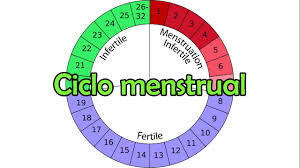The Pharmacovigilance Risk Assessment Committee (PRAC) of the European Medicines Agency (EMA) has announced that it is reassessing cases of heavy menstrual bleeding (heavy periods) and absence of menstruation (amenorrhea) after receiving the Covid-19 vaccines from Pfizer and Moderna.
The Committee had previously discussed these menstruation problems and concluded at the time that the evidence «does not support a causal relationship between these vaccines and menstrual disorders.»
In light of new findings, the PRAC has decided to «further assess cases of heavy menstruation or amenorrhea after vaccination», requesting an «in-depth assessment of all available data, including reports from spontaneous reporting systems, clinical trials and the published literature.

«At this stage, it is still unclear whether there is a causal relationship between COVID-19 vaccines and cases of heavy periods or amenorrhea . There is also no evidence to suggest that vaccines affect fertility,» the European regulatory body clarifies. .
Menstrual disorders are very common and can occur with a wide range of underlying medical conditions, as well as stress and exhaustion. Cases of these disorders have also been reported following COVID-19 infection.
Heavy menses can be defined as bleeding characterized by a volume that can interfere with the person’s physical, social, emotional and material quality of life. Amenorrhea is the absence of menstrual bleeding for three or more months in a row.
Fuente: Consalud
 Blog de Fisioterapia Fisioterapia
Blog de Fisioterapia Fisioterapia



